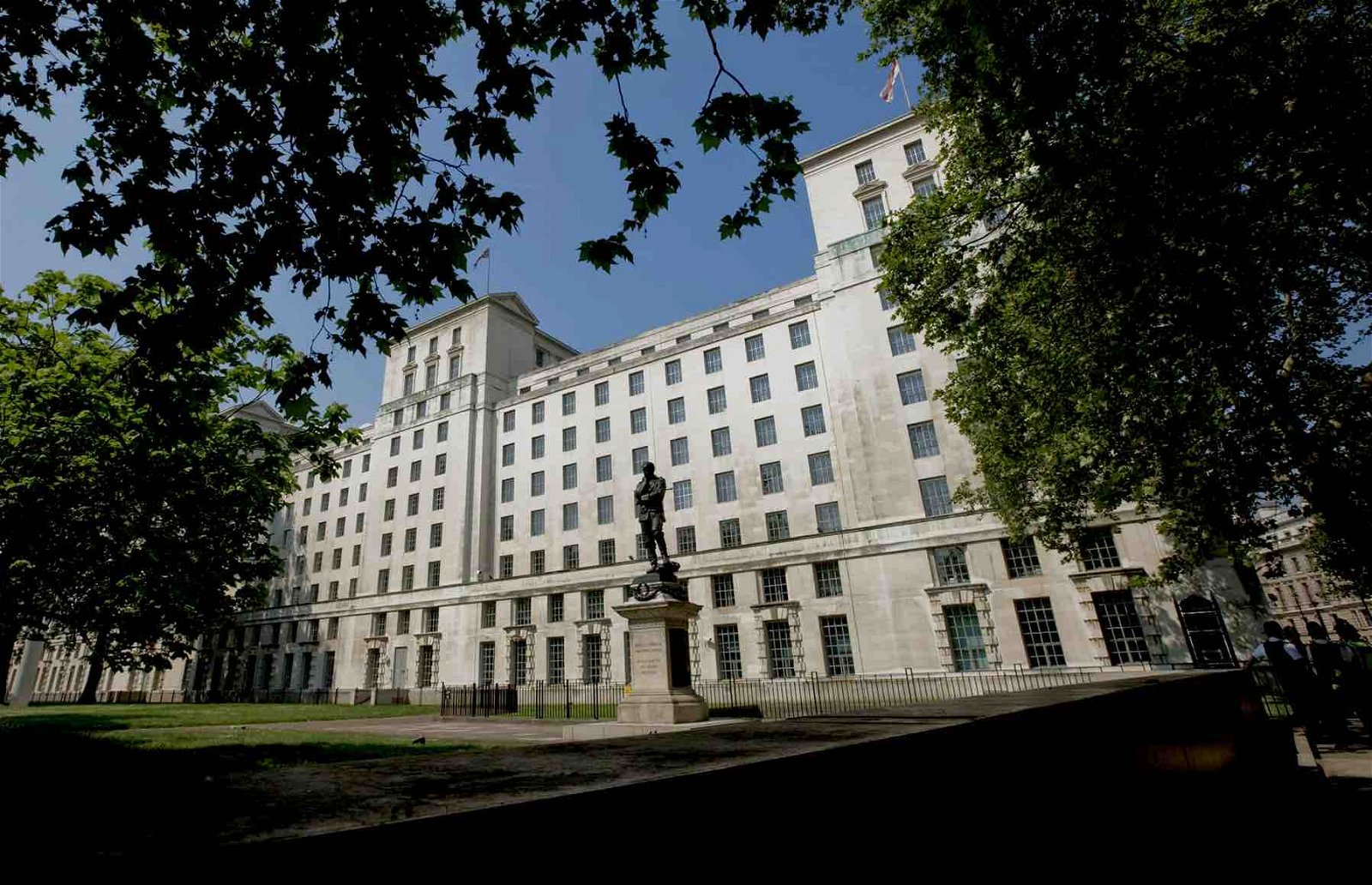When I was a young fast-stream civil servant at the UK Cabinet Office in the 1990s, the Government seemed to have a line-to-take on everything. There would be an official, maybe in a far-flung division of an obscure department, responsible for each policy, as hard as it might be to find that person and track them down.
I think my observation remains true today concerning the UK Government’s policy on Unidentified Anomalous Phenomena (UAPs), even if the Government tries hard to make it appear as though there is no policy and that no one is in charge.
The UK’s Ministry of Defence used to have a ‘UFO Desk,’ which is where Nick Pope is said to have worked in the 1990s. Famously, the then-Secretary of State, Bob Ainsworth, announced the closure of the desk in 2009 under the following logic:
“In more than 50 years, no UFO sighting … has indicated the existence of any military threat to the UK; there is no defence benefit in … recording, collating, analysing, or investigating UFO sightings”
and
“the level of resources devoted to this task is … diverting staff from more valuable defence-related activities”.
Yet, at a time when the United States has set up the All-domain Anomaly Resolution Office (AARO) to investigate UAP sightings, have held a hearing on UAPs in the House of Representatives, and have the Schumer amendment on UAP transparency making its way through Congress, are we really to believe that the UK Government has no resources focusing on UAPs?
Speaking to Julian Worricker on the World Tonight program on August 3rd, David Grusch, one of those UAP whistleblowers who provided testimony under oath to the U.S. Congress, said information about UAPs “does cross into other countries and other allies to include the Five Eyes alliance,” which echoes the statement from Sean Kirkpatrick, Director of AARO, on May 31st that in the previous week, he had met with the Five Eyes to discuss UAP data collection and collaboration.
The Five Eyes Alliance is an intelligence-sharing network between the United States, the United Kingdom, Canada, Australia and New Zealand. So clearly, the UK is interested and involved in some capacity.
According to files from the National Archives, Carl Mantell of the RAF’s Air Command was the civil servant who penned the advice to Sir Bob Ainsworth in 2009 on the UFO desk closure. So, presumably, he was in the UFO policy hot seat then. But who might be in charge of UAP policymaking today?
Looking across the Machinery of Government, I suspect that policy for UAPs is spread across the Cabinet Office, Ministry of Defence, Foreign and Commonwealth Office, and the Secret Intelligence Service (MI6). With operational involvement of the Royal Air Force, DE&S, and DSTL. Plus, in all likelihood, some private contractor support, both from UK Aerospace companies and UK subsidiaries of US contractors.
Somewhere within the U.K. Government, someone is responsible. The ‘UFO desk’ lives on under another name.
I suspect, too, that the civil servant in question is growing increasingly alarmed at the level of dissonance between the current line-to-take and the way in which events are unfolding. A friend of mine received a reply from “Air Command Secretariat” at the MOD that contained the following rather extraordinary paragraph:
“I must inform you that the MOD has no opinion on the existence of either extraterrestrials, Unidentified Flying Objects (UFOs) or Unidentified Aerial Phenomena (UAPs). While I recognise you have used the term Unidentified Anomalous Phenomena, the Department does not recognise this term, and I have therefore answered your question using our definition of UAP.”
The response goes on to repeat the 2009 Sir Bob Ainsworth line about there being no military threat. This feels like a tired reply that is past its sell-by date. I am sure that there are civil servants in the areas in question who are coming to this view, too.
By continuing to employ this line-to-take, the Government is delegitimizing conversations about UAPs. Taking away people’s voices on the topic leads to bad policymaking. If civil servants are inhibited from discussing the UAP topic – not only with the public but also with other branches of government – they cannot fully consider people’s needs, develop options, and offer their thinking up for constructive challenge.
Take flight safety risks. In June 2021, the US Office of the Director of National Intelligence produced a Preliminary Assessment on UAPs that stated:
“Most of the UAP reported probably do represent physical objects…”
and
“UAP clearly pose a safety of flight issue.”
One might reasonably expect the UK’s Civil Aviation Authority (CAA) to have been in touch with the US authorities about this statement and to have conducted a risk assessment on flight safety risk.
In September, I initiated a Freedom of Information Act request on this point, asking:
“Please provide copies of any risk assessments (quantified or unquantified) that the Civil Aviation Authority has carried out to assure itself that the existing measures in place are sufficient to protect pilots and air passengers from any risks associated with Unidentified Anomalous Phenomena (UAPs). Please, further, provide copies of correspondence in relation to the risk from UAPs to and from air safety and regulatory bodies in the United States; and any guidance given to pilots about UAP risks.”
The response that came back was as follows:
“Following a review of held information it has been determined, on the balance of probability, that the CAA holds no information within scope of the above original enquiry.”
My subsequent requests to try to get an explanation as to why they have not carried out a risk assessment or been in touch with the US authorities have not been answered. A request for a meeting was denied.
Of course. What else could the Head of Safety at the CAA do? He is not permitted to acknowledge the legitimacy of the UAP topic, so he is not able to talk to me or offer a substantive response to my question. Does anybody think this is good for pilots or air passengers? Or for confidence in air regulation and safety?
Another area in which this absence of a policy is causing real damage is the lack of physical and psychological health support for people affected by seeing anomalous objects in the sky. Sometimes called ‘experiencers’, these individuals are harmed in two ways: first from seeing something potentially frightening and then, when they ask for help, by being told directly or implicitly by doctors and other health professionals that they are mistaken or unwell. What are individual doctors to do when their professional bodies, such as the General Medical Council and the Royal Colleges, offer no guidance on the topic? Again, as with the CAA example above, it is the lack of a policy position on UAPs from the Government that is the fundamental problem.
On this front, I am part of a team that is setting up a new organization to help. We are establishing uNHIdden to promote mental health and well-being around anomalous experiences, as well as to help reduce anxiety around non-human intelligence and disclosure. It will be set up as a charity formally in the new year. uNHIdden has a medical board made up of doctors and clinical psychologists who are keen to help develop strategies that support both patients and therapists in this difficult area.
uNHIdden mirrors and works closely with UAP Med, which is based in the US and is focused on mitigating the effects of UAP/UFO exposures on witnesses, families, communities and society. Founder and Director Ted Roe explains his philosophy as follows:
“Like uNHIdden, our focus is on looking after and supporting the people affected by unexplained objects and unusual sightings. We need both strategies and front-line care to help people whose lives literally change in the instant that they see something that they cannot explain. At present, these people seem largely ignored.”
There are now indications that things may be about to change. Writing in Liberation Times on 13th October in an article, “The United Kingdom and the Looming UFO Paradigm Shift,” British journalist Christopher Sharp wrote:
“Multiple sources have informed Liberation Times that they anticipate some form of confirmation regarding programs linked to crafts of unknown or non-human origin in 2024, which lack any mundane explanation.
“If events continue to develop on this trajectory in the US, it will become abundantly clear that the prospects for maintaining the status quo [on UAP policy], as pursued by some individuals within the UK Government, are rapidly diminishing.”
Chris adds that senior UK Members of Parliament are closely following the UAP topic, but fear talking publicly on the topic due to associated stigma.
This seems optimistic. I must say I have a great deal of sympathy for the civil servant who finds him- or herself in the UAP hot seat today. They did not construct the “no military threat” line 14 years ago. Nor are they responsible for 80 years of obfuscation and denial. Plus, there is no UK equivalent of AARO or the Schumer Amendment, on which to hang a new line-to-take that shows the Government in a positive, proactive light.
Here is my thinking. The Government does not need to go “full tonto” (as Ben Wallace might say) on UAP disclosure; it just needs to show that it is taking the topic seriously. If I may offer a suggested new line-to-take, it would be something like the following:
“The Government acknowledges the legitimacy of observations of anomalous objects in the sky. We are working with our international partners to investigate the causes and their implications.”
This would be transformational in that it would start to reduce the stigma associated with the UAP topic. People who have seen unusual things would be able to feel that their experiences were seen as legitimate, so they could start to seek the help they need. Many in the ‘UAP community’ may feel that this line-to-take does not go far enough. But it would be a start. A journey of a thousand miles, and all that.
We at uNHIdden want to play a constructive part in helping to shape the future support of people affected by anomalous experiences. As well as starting to help create better conversations on the UAP topic.
I hope that the U.K. Government is listening.
John Priestland is the Founder and Chairman of uNHIdden (www.unhidden.org).

